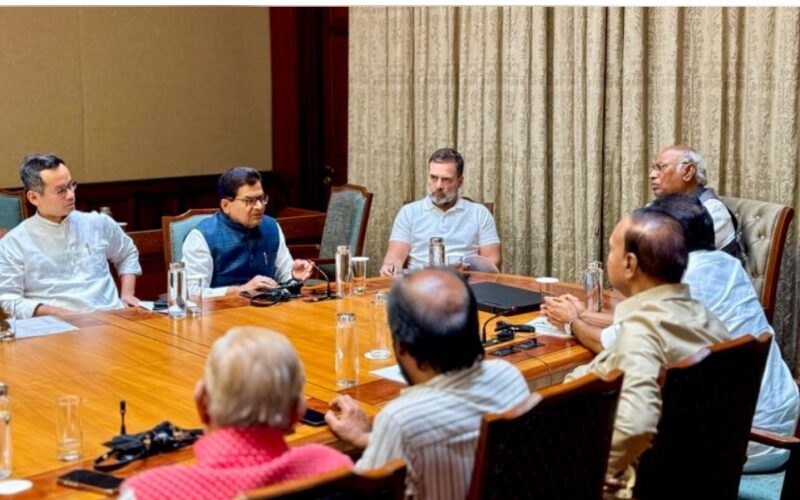New Delhi, April 1, 2025 – The INDIA opposition alliance has united to challenge the Waqf (Amendment) Bill, which is set to be debated and passed in the Lok Sabha. A meeting in Parliament House brought together leaders from multiple parties to discuss their joint strategy against the bill, which they believe could have significant implications for Waqf properties and minority rights.
What is the Waqf Board?
A Waqf is an endowment made by Muslims for religious, charitable, or educational purposes. It is governed by state Waqf boards, which manage and oversee properties donated for religious or social welfare purposes. These properties are protected under the Waqf Act, 1995, which grants boards the authority to register, regulate, and safeguard Waqf assets, preventing their misuse or illegal transfer.
Proposed Changes in the Waqf (Amendment) Bill
The new Waqf (Amendment) Bill proposes several key modifications to the existing law, sparking concerns among opposition parties and minority groups. Reports suggest that the bill:
Alters the definition of Waqf properties, potentially opening the door for their commercial use or government acquisition.
Changes governance structures of state Waqf boards, possibly reducing their autonomy and giving more power to central authorities.
Revises dispute resolution mechanisms, which may make it harder for Waqf boards to reclaim encroached properties.
Restricts new Waqf registrations, which could impact the establishment of mosques, madrasas, and charities.
The opposition alleges that these amendments undermine the essence of Waqf properties, weakening the ability of boards to protect Muslim endowments.
Political Opposition and Meeting Details
Leaders from major INDIA bloc parties, including the Congress, Samajwadi Party, Trinamool Congress, Aam Aadmi Party, and Dravida Munnetra Kazhagam (DMK), attended the meeting. Congress president Mallikarjun Kharge, Rahul Gandhi, KC Venugopal, and SP’s Ram Gopal Yadav were present, along with NCP’s Supriya Sule, TMC’s Kalyan Banerjee, and AAP’s Sanjay Singh.
The meeting strategized how to block the bill’s passage in Parliament, with leaders arguing that it violates constitutional protections for minority religious institutions. Some MPs have demanded that the bill be referred to a parliamentary committee for broader consultations before implementation.
Government’s Stand
The ruling party argues that the amendments aim to streamline Waqf management, prevent land disputes, and increase transparency. Officials claim that some Waqf properties are being misused and that the reforms will improve accountability. However, critics fear this is a pretext for state interference in Muslim religious endowments.
With tensions running high, the Lok Sabha debate is expected to be heated, with a possible showdown in the Rajya Sabha as well.
INDIA Bloc Gears Up to Oppose Waqf (Amendment) Bill in Parliament

